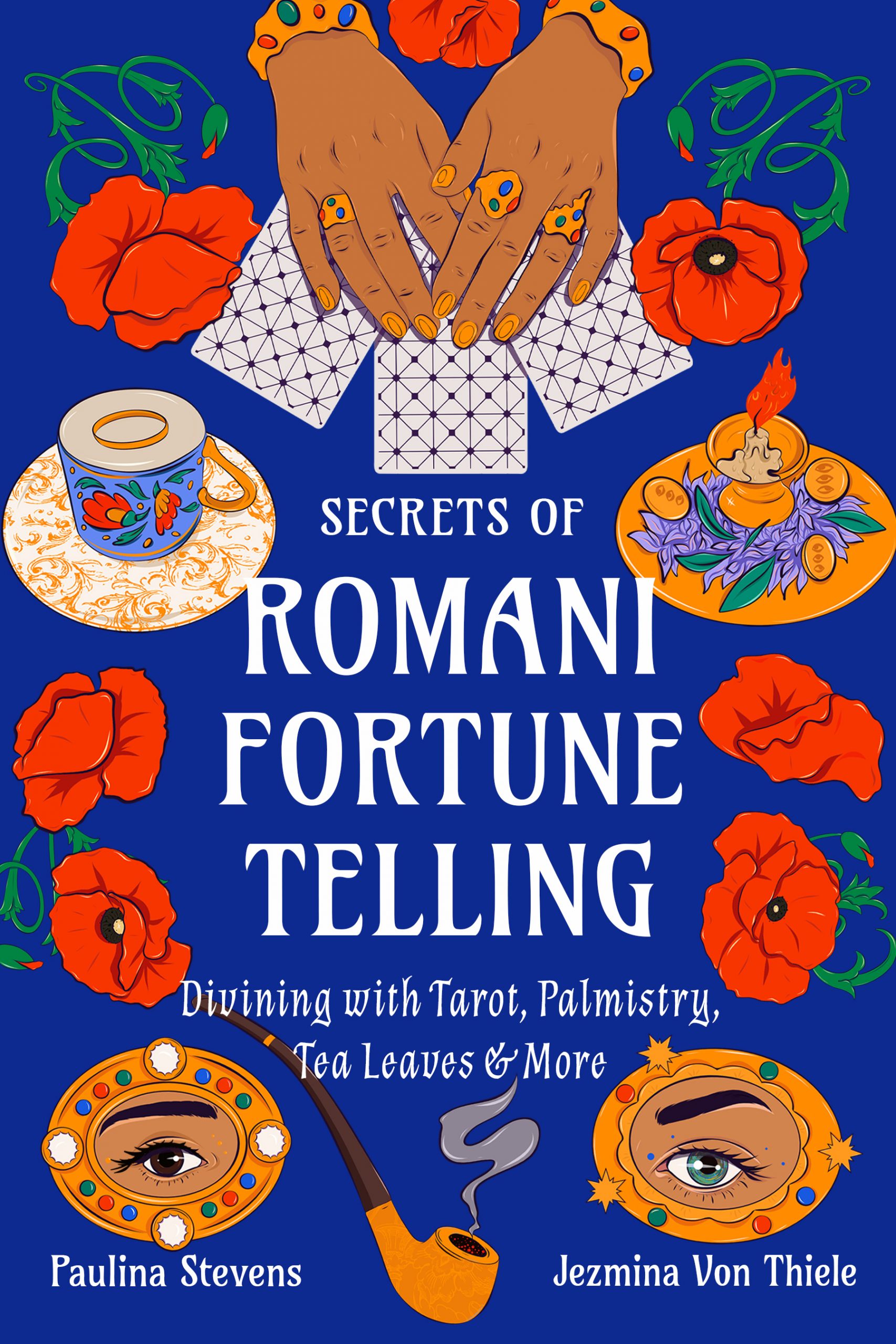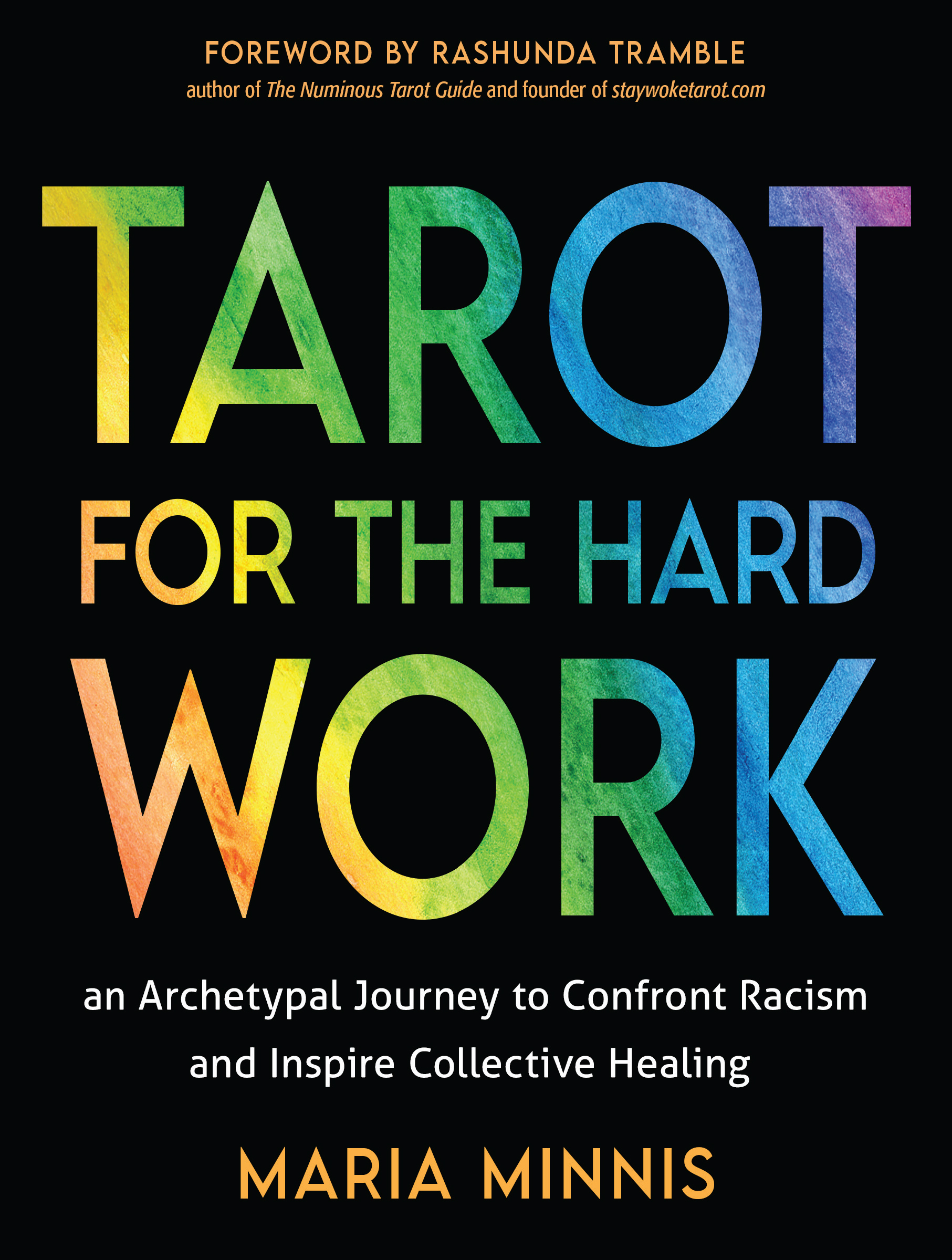An Excerpt from “Secrets of Romani Fortune-Telling” by Jezmina Von Thiele and Paulina Stevens
Dream divination is the cornerstone of fortune-telling for both of our families, and many others. Dreams are a liminal space, between worlds, where ancestors, spirits, messages, and symbols can reach you. Dreams are also a place where the subconscious throws its deepest concerns onto a screen for you to watch and sift through. Repressed emotions are never good for our well-being. For that reason, Western psychology is preoccupied with dream interpretation, with Jung being the most recognizable name in dream interpretation, and much of his practice draws from much older wisdom and symbols from other cultures, mainly from what is broadly considered the East. For that reason, some of our approach to dream analysis may be familiar already, because our culture and many others were inspiration for a differently packaged Western approach. At the same time, we all have personal experiences with symbols, perhaps in ways that are very different from the cultures we come from.
Ultimately, knowing and caring for yourself keep you grounded enough to be a good reader. We have years of experience delving into dreams, and while we refer to our shared cultural background, we created this chapter in a way that anyone can use our techniques for navigating the world of dreams.
Jezmina’s Story
My grandmother was taught by her grandparents that dreams are how we expand and understand our intuition, and communicate with ancestors and divinity. She understood dream interpretation to be foundational to any divinatory practice. I often slept over at my grandmother’s trailer, and a regular part of my training was discussing our dreams every morning. She was teaching me to interpret dreams bit by bit, by helping me understand my own, but also sharing some of hers with me. Around the same time she began teaching me dream interpretation, when I was about four, my grandfather, her ex-husband, died by suicide. He was a very violent and troubled man, an American WWII veteran who plucked my grandmother out of the postwar wreckage of Germany when she was just nineteen, and he left lifetimes of trauma in his wake.
The only dream my grandmother had back then was the same scenario on repeat: she dreamed that she was running, and that my mother and her siblings were children again, and they were running with her. In the dream, my grandfather chased them aiming his rifle with a wild look in his eyes, something that had happened before in the waking world. The scene would change from dream to dream—sometimes they were at home, in a store, or in a forest. The dream always ended the same way. My grandmother would find somewhere to hide her children, a closet, a cave, a tucked away place, and sigh with relief that they were safe. Then she would face my grandfather, and he would fill her with bullets until she woke up. Hearing this dream over and over when we woke in the mornings, sun streaming into the bedroom, wrapped up in her big German feather down covers, taught me at a very young age that many of the dreams we have are not about us navigating the future, but rather, surviving the past.
Paulina’s Story
Growing up, my family believed anyone who knew us who had passed on would be able to reach us through our dreams. I was taught our dreams were a portal to communicate with our loved ones and see how their spirits were doing. For example, if they asked for food in our dream, we couldn’t give it to them. Hungry spirits meant that they were unsettled in the afterlife, and if we gave them food, we could be prolonging their suffering, because they needed to accept that they are not in this world anymore.
Many dream interpretations that I was raised with meant the opposite of what they seemed. How could dreaming of money and abundance mean coming into problems with business in the real world? This baffled me as a kid, but after reading many books from our family store collection and badgering my great-grandparents, I learned about the aspect of psychology behind dreams. Little things made sense. Dreaming of money in any way meant even your subconscious was too concerned about money, and this couldn’t be good for you moving forward. Maybe all the superstitions had some scientific roots. Now I see many articles and books around the psychology behind our dreams and I believe this strongly intersects with Romani dream divination, where we can find similarities with many other cultures around the world.
Prophetic Dreams
Even so-called prophetic dreams, or dreams that predict the future, are rarely straightforward. For many people, even very intuitive people, prophetic dreams can be relatively rare, usually appearing in times of crisis, or more confusingly, in flashes of deja vu that don’t seem important at all. We’ve met some people who dream in prophecy every night, but if that’s not your reality, you’re not alone. Luckily, most of our day-to-day life is made up of small events, not crises, and doesn’t warrant dramatic dream intervention. The small events are important, though, and they take up a lot of our time and emotional energy. Most dreams are like this too, reflections and fragments of our smaller concerns, or the background noise of our deeper issues, burbling up from the subconscious. The idea is that if we can use these “mundane” dreams as helpful tools to understand ourselves and our lives, the bigger, more profound dreams will be easier to spot and understand too.
There might be times when you do get a warning in a dream and you really feel it in your bones or your gut. It’s wise to listen to that. You might have already experienced this, and typically it’s something you feel in your whole body. This has happened to us too—it’s important not to assume that every bad dream is a warning, though. There are probably indicators that help you know when a dream truly is a warning, like certain people or guides delivering the message in an unmistakably clear way.
Some common symbols in prophetic dreams for Roma vary. Sometimes what we dream actually means the opposite. Like if you dream of a relative giving birth to a baby boy, it might actually be a girl. Many Roma believe hair and teeth falling out in a dream represents your troubles or worries leaving your life, so it’s actually a good dream. Seeing a little blood in a dream means good luck, but seeing a lot of blood means bad luck. Seeing money means it will come your way, but touching money in the dream is bad because your subconscious might be too greedy or worried about money. Touching money can even mean there are rumors or negative words circulating in your life. Dreaming about cash in general may be a particularly Romani experience because for almost our whole existence, we worked with only cash, and many still do. Many Roma weren’t even allowed to open bank accounts, and in some places that’s still true. Present day, some families still don’t trust banks or the government with their money at all because of that history. Most people get paid through their bank accounts or paychecks, and some businesses do take cash only, but in a Roma family, your whole lineage dealt only with cash, so physical money, such as dollars and coins, is very significant to us.
Animals in Dreams as Prophecy
Romani culture, like all other cultures, tends to have certain associations with animals and plants. And then certain Romani subgroups, or vitsas, might have their own associations, and families their own, and individuals as well. It can get very personal and specific, and not everyone agrees all the time on what certain animals mean. You might find this yourself—maybe you love an animal that many tend to shun, like spiders, and maybe an animal that most tend to love, like dogs, makes you uncomfortable. Take all of this into account when you’re interpreting your dreams.
When we first started collaborating on Romanistan podcast together, we realized that both of our families believed dreaming about animals signaled either a prophetic dream, or a prophetic aspect of a dream. For instance, both of our families tend to read birds as bearers of news, whether it’s good or bad. In Paulina’s family, snakes represent gossip, and in Jezmina’s, snakes represent change. Fish represent fertility, abundance, and manifestation in both of our traditions. In Paulina’s family, dogs represent spirits or ancestors visiting you, and in Jezmina’s, dogs represent protection or a loyal and faithful friend. These are just a few of many examples, but the trick is to learn what these animals represent for you specifically.
Examples of Prophetic Dreams
It can be helpful to have examples so you know how prophetic dreams work for others, even if you have your own experiences. Intuition can expand and evolve over time, so there’s always plenty to learn. We will share a couple of prophetic dreams from our own lives with the lessons we learned from them.
Jezmina’s Prophetic Dream
When I was in my first year at college, I had a brand new roommate, Sarah, whom I was already very fond of even though we had known each other only a couple of weeks. She was an adorable music-blaring, tennis-playing punk in a dog collar, denim dress, and red Chucks, and I knew we were going to be great friends, and we still are to this day. I don’t sleep well, so I wake up pretty frequently. As such, I have a strong distinction between night dreams and morning dreams, and I’ve noticed that most of my spiritual healing or processing dreams come at night and most of my prophetic dreams come in the early morning. One morning, I dreamed that Sarah was driving her car at the time, a sporty red ’93 Subaru SVX that she called “Back to the Future” because it looked like the DeLorean. In the dream, I was like a spirit hovering over her shoulder, and I saw the lights on her dashboard all light up like a Christmas tree, the car start to shake, and Sarah try to hit the brakes, but they wouldn’t work, and she veered off the road and got into a terrible wreck.
I woke up gasping, and both of our alarms were going off. I felt fear jangling through my body, and I had a very clear message for her that seemed to come from the dream, and not my brain. “Sarah, you have to get your car checked out. You can’t drive more than a mile, so go to the place next to the school on Williamson Road. Your brakes are almost gone and they won’t make it any further than that.”
“What are you talking about?” she said, sitting up in her bed and rubbing her eyes.
“Listen, I know it’s weird, but I get messages in my dreams sometimes, and I just had one, and I just know you’ll get in an accident if you don’t take care of this today, right now. Trust me.”
Sarah looked at me in silence for a little while. I thought for sure I had scared her off. I hadn’t explained my fortune-telling or anything about myself that would give this more context. Witchy behavior wasn’t that cool or trendy back in 2004 like it is now. I was bullied for being different as a kid, and I was worried that my new friend would think I was spooky too. But then she nodded her head and said, “Okay. If it’ll make you feel better, I’ll do it right now.”
“Thank you!” I said. “It would make me feel better.”
So she left right away and brought Back to the Future to the nearest auto shop. Later that morning, I ran into Sarah in the hallway of the English building.
“You were right!” she yelled, raising her arms and clenching her hands into celebratory fists. Everyone in the hallway turned to see what the commotion was all about. “My brakes were just about to go! The guy at the shop said it was a miracle I made there in one piece. Damn, you’re good!”
After that, Sarah told this story to all of her friends, and news of my intuition spread far and wide. It ended up being great for my little fortune-telling side hustle, and she was my biggest supporter. I was just glad she and Back to the Future were safe and sound.
Paulina’s Prophetic Dreams
Why are we so good at predicting car accidents? When I dream of swimming through water, that tends to be a warning that I’m going to get into a car accident. I was taught by my family that dreaming of water at all was usually a bad omen. Recently, I had a feeling that something was going to happen to my car when I dreamed that a tsunami had swept over my town. After that dream, I noticed that little things around me, electronics and the like, stopped working or even began falling apart. I am so used to this kind of warning in my dream that I decided to preemptively trade my car in, and on the way home with the new one, someone rear-ended me. I felt like I couldn’t escape my fate no matter how hard I tried. It wasn’t a serious accident, but why did I need to get into an accident at all? Was I projecting? Could it have been worse? I learned that I should trust my instincts but accept my fate at the same time. I believe we should take precautions for sure, and our intuition pushes us out of our comfort zone and challenges us in ways we wouldn’t have imagined.
Sleep Quality
Quality of sleep is helpful, though not necessary, for dreamwork. Both of us have struggled with insomnia, nightmares, and night terrors since we were kids, but we have still been able to gain a lot of insight from dreams. Some people sleep well with very little effort, and some of us need to put some work into it. Even if you can’t relate to the struggle to sleep, these tips and tricks for a better night’s rest can still be very helpful.
Data-Driven Sleep Tips
Have a set bedtime every night. If you lose track of time, you can set bedtime alarms. Try setting one for when you want to start getting ready for bed, and another for when it’s time to go to sleep.
Most people sleep better in dark rooms. Investing in blackout curtains might help.
Some people need quiet, while others sleep best with sounds, like rain, white noise, soft music, or even podcasts. Experiment with what works best for you. Set a sleep timer for music or a podcast so it doesn’t play sound all night and wake you up later. Avoid falling asleep to the TV if possible because it casts disruptive light. Find the room temperature that’s ideal for you. Studies show that many people sleep best at slightly cooler temperatures, but that’s not necessarily true for everyone. Experiment.
Avoid eating and drinking two hours before bed. It’s okay to have a little water or non-caffeinated herbal tea if you take medication or supplements before bedtime.
Try to stay off your electronics a couple of hours before bed. If you need an activity to unwind, opt for reading, drawing, knitting, etc.
Exercise earlier in the day. Studies show that daytime physical activity helps people sleep better at night.
If you get a little snacky after dinner or prefer something light instead of a full evening meal, these foods have been shown to promote a good night’s sleep. Having a small snack two hours before bed is totally fine for most people, unless you find that doesn’t work for you. Everyone is different, so listen to your body.
• A cup (8 oz.) of tart cherry juice
• A kiwi
• A handful of almonds
• A handful of walnuts
• A banana
. . . maybe combine these for a smoothie?
People also tend to sleep better in clean, tidy, pleasant-smelling bedrooms. Cool and neutral colors are popular in bedrooms because they tend to be relaxing. Lighting, scent, and sound can be very helpful for signaling to your brain that it’s time to unwind.
—Jezmina Von Thiele and Paulina Stevens, Chapter 3, Dream Divination, Copyright © 2024
Featured Book
Secrets of Romani Fortune-Telling
In “Secrets of Romani Fortune-Telling,” Paulina Stevens and Jezmina Von Thiele introduce the history of the Romani people and their infamous relationship to fortune-telling. They share divination methods, tools, and techniques that have been created, adapted, or popularized by the Roma, including card reading, palmistry, dream divination, and tea leaf and coffee reading.


